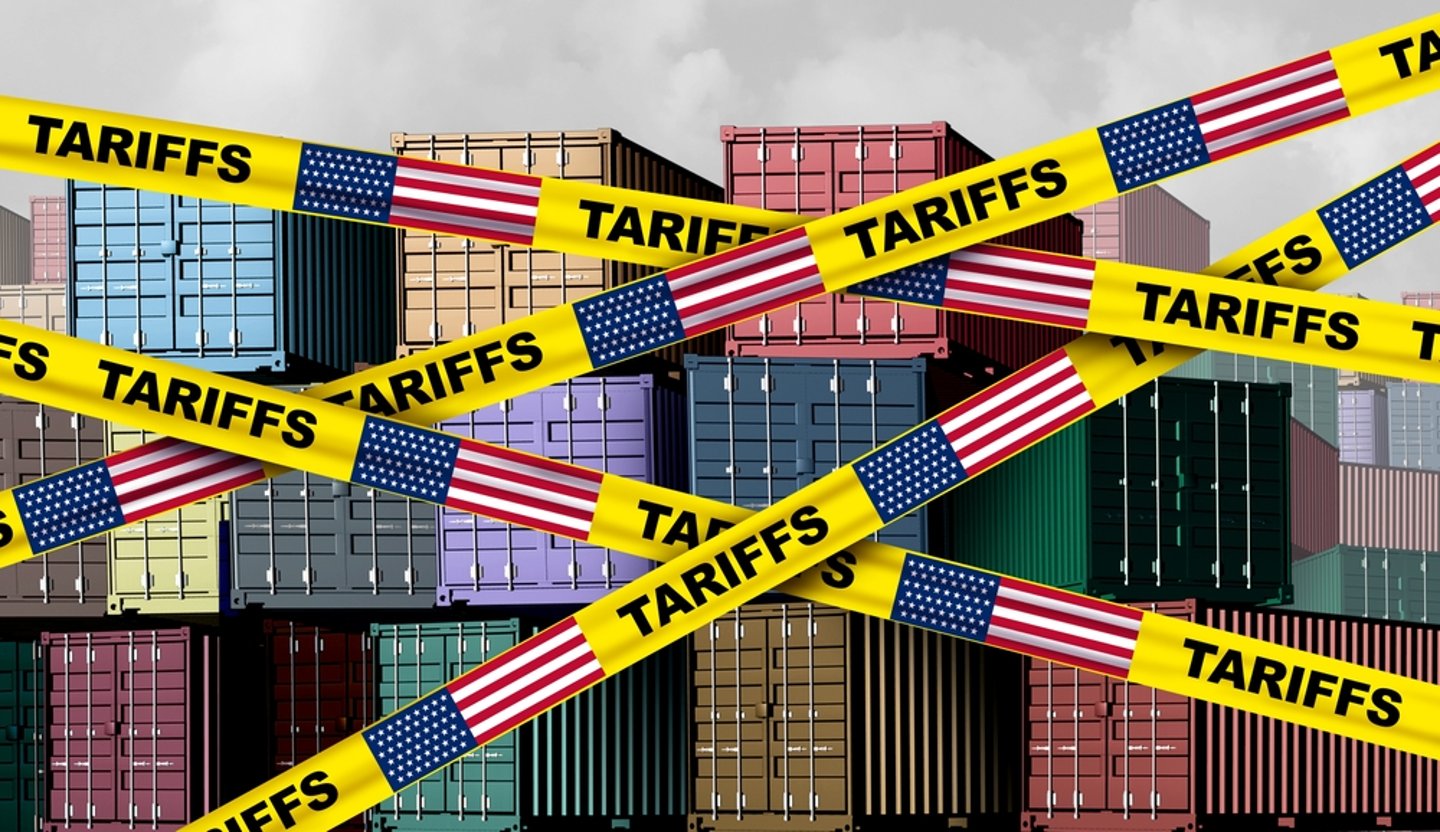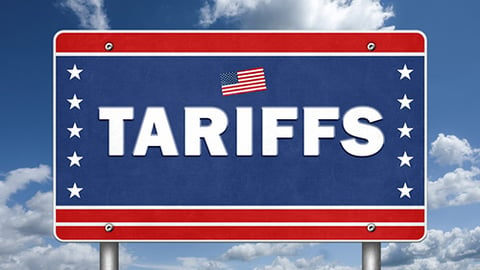Retail Industry Sounds Warning Note in Response to Tariffs
President Donald Trump’s unveiling of a minimum 10% tariff on more than 100 trading partners, along with additional country-specific rates, on April 2, or “Liberation Day,” as he dubbed it, was greeted with trepidation by the retail industry, including grocers.
“While we have witnessed several positive steps that have reduced unnecessary regulatory burdens on our industry, we are concerned that today’s tariff announcement could bring rising prices, a squeeze on household budgets and reduced competitiveness for American companies relative to international competitors,” said Leslie G. Sarasin, president and CEO of Arlington, Va.-based FMI – The Food Industry Association. “The uncertainty and inflationary pressures created by reciprocal tariffs are a major worry for American consumers and our food industry member companies that operate on slim 1.6% retail and 7.5% food manufacturing net margins.”
Sarasin noted consumer apprehension, citing FMI’s March Grocery Shopper Snapshot survey finding that 54% of grocery shoppers identified higher tariffs on imported food as their biggest concern related to the price of groceries – a five-percentage-point rise from January.
“Our food system is intricately linked with global markets − including products not grown in the United States, like bananas or seasonal items − which helps keep prices down while providing American shoppers year-round access to safe, nutritious food,” she added, vowing that FMI was “committed to being a source of information for the Trump administration about consumer sentiment regarding tariffs and other issues impacting the economy and grocery prices.”
[RELATED: Are Americans Ready for Impact of Trump’s Tariffs?]
Such concerns are shared by organizations representing consumer packaged goods companies and suppliers.
While “the consumer packaged goods industry already manufactures the majority of its products here in the United States,” Tom Madrecki, VP of supply chain resiliency at Arlington, Va.-based Consumer Brands Association, pointed out that “there are critical ingredients and inputs that need to be imported due to scarce availability domestically. No amount of tariffs will bring these inputs back to the U.S.”
Added Madrecki: “However well intended, the success of the President’s America First Trade Policy, must recognize the U.S. companies that are already doing it the right way but depend on imports for specific ingredients and inputs that cannot be sourced domestically. Reciprocal tariffs that do not reflect ingredient and input availability concerns will inevitably raise costs, limit consumer access to affordable products and unintentionally harm iconic American manufacturers. We encourage President Trump and his trade advisors to fine-tune their approach and exempt key ingredients and inputs in order to protect manufacturing jobs and prevent unnecessary inflation at the grocery store.”
Similarly, Cathy Burns, CEO of the Washington, D.C.-based International Fresh Produce Association, said that the trade organization “remains concerned about the broader application of tariffs on global trading partners and the resulting disruptions to supply chains, market stability and food prices worldwide. The global trade of fresh produce is essential to the health and well-being of people in every nation. Targeted use of tariffs can be a tool for addressing inequities between trading partners, but broad application of this blunt tool often disrupts markets, raises consumer costs, and places unnecessary strain on growers and producers across the supply chain.”
Added Burns: “Fresh produce trade is uniquely complex, shaped by seasonal and regional factors that require a well-functioning market for year-round availability. Once businesses lose market share, reclaiming it is difficult — if not impossible — dealing a lasting blow to an industry vital to food security and economic stability.”
Further, in a terse statement, Lisa Wallenda Picard, president and CEO of the Reston. Va.-based National Fisheries Institute, noted: “While we are encouraged by exemptions on reciprocal tariffs for some countries, like Canada and Mexico, tariffs will raise the cost of seafood, making the healthiest animal protein on the planet less available and more expensive. ... Meanwhile, the tariffs could threaten many of the 1.6 million American jobs that, according to the federal government, U.S. commercial seafood companies support.”
The broader retail community observed that Trump’s tariffs will not only affect groceries, but also clothing, home goods and school supplies.
“The president’s plan is not a targeted attempt to protect American innovation or national security but will hit every family’s budget,” asserted Michael Hanson, senior EVP, public affairs at Washington, D.C.-based Retail Industry Leaders Association. “Americans cannot afford another round of price increases.”
Continued Hanson: “These newly announced tariffs — and the expected retaliatory tariffs on American businesses — risk destabilizing the U.S. economy, undermining the goals of bolstering domestic manufacturing and growth. We urge the president and his economic team not to abandon the pro-growth policies that powered his first term — namely the Tax Cut and Jobs Act. Before lasting damage is done to the economy and family budgets, we urge the White House to reconsider its course. ”






